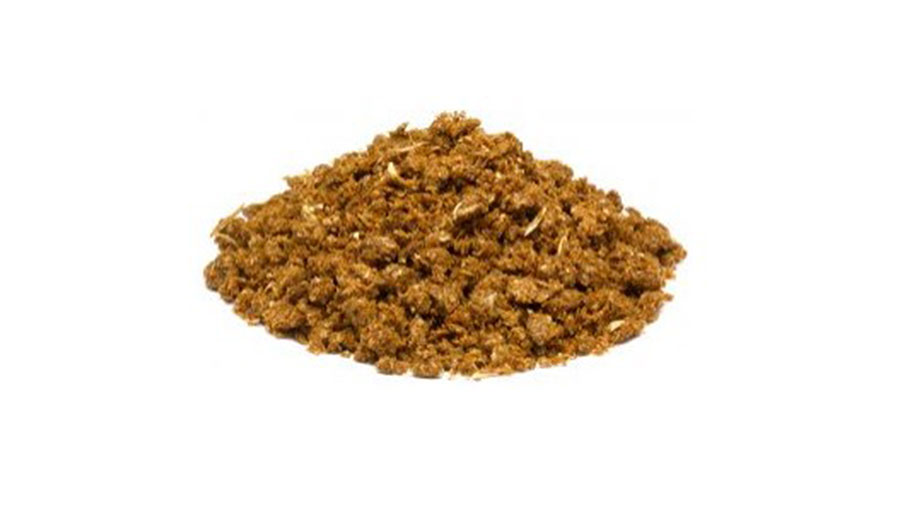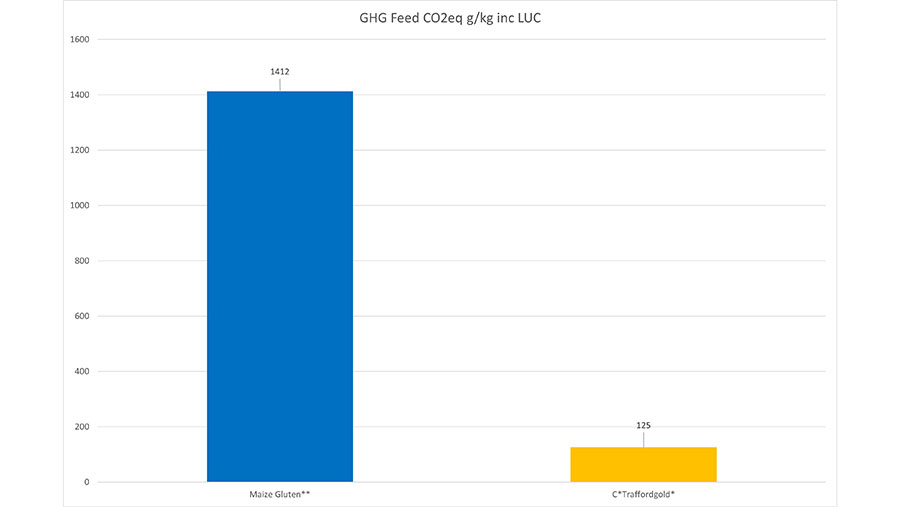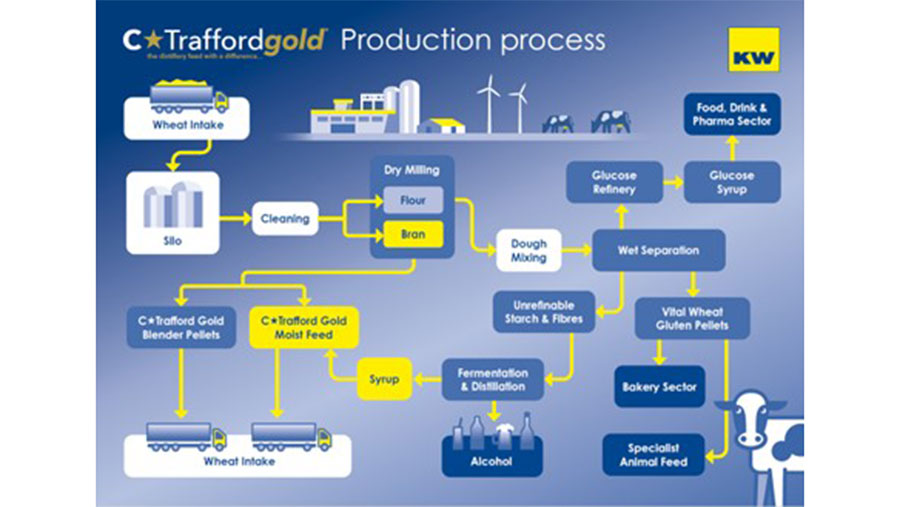Advertiser content
Reducing ruminant feed costs without compromising performance
Making effective use of co-products from the food and drink industry
Soaring production and input costs have put more pressure than ever before on dairy and beef producers to control feed costs, whilst also considering the sustainability and environmental credentials of the ration.
C*Traffordgold, a high energy moist distillery feed made from British wheat, is a flexible feed providing a balance of protein, digestible fibre and starch.
The unique 50% dry matter moist feed, with energy content of 13.4 MJME/kgDM, provides a cost-effective alternative to compound feed and is suitable for dairy rations, including dry cows, as well as beef, youngstock and sheep.

C*Traffordgold © KW
With dairy producers in particular aiming to increase income over feed costs for milk production given the current challenges, C*Traffordgold can help improve margins.
“Replacing 3kg of 18% high energy compound, at £390/t with 5kg of C*Traffordgold at £159.50/t* will see an average 30 litre/cow/day herd increase margin over feed costs by 1.2ppl, with savings of 37p per head per day,” explains Dr Anna Sutcliffe, KW Feeds regional technical manager.
Coming from one traceable source, C*Traffordgold also brings key sustainability benefits.
Feed Life Cycle Analysis (LCA) undertaken by one of Europe’s leading LCA experts has revealed C*Traffordgold has a much lower carbon footprint, at just 125g Co2 eq/kg as fed, than dry feeds**.

Carbon comparison chart © KW
* CO2 eq figure from an LCA undertaken by leading independent environmental consultants, Blonk consultants.
**Global GFLI figure for Maize Gluten including land use change (LUC) Figures include LUC, are ex haulage and are reported on an as fed basis- please note TG is 50% DM
What are the benefits of C*Traffordgold?
By improving ration palatability, structure and overall dry matter intake, C*Traffordgold supports improved yield and growth rates.
It also increases ration energy density benefiting milk and milk constituent yields, fertility and growth rates.
“Increasing the base TMR M+L with C*Traffordgold, as an alternative to compound feed, will also reduce the negative rumen effects associated with slug feeding in the parlour,” says Dr Sutcliffe.
“It is a low substitution rate buffer feed for grazing herds, and can also extend or replace forages when stocks are limited or turn-out delayed,” she adds.
Beef and youngstock
As a palatable concentrate C*Traffordgold is suitable for straw and silage feeding systems for youngstock and beef cattle.
“C*Traffordgold improves growth rates, feed conversion and increases carcass yield in beef animals,” continues Dr Sutcliffe.
“It also reduces heifer replacement feed costs whilst achieving target growth rates, therefore improving profitability.”
By offering an alternative and cost-effective option to cereal and soya/urea-based finishing systems, where the emphasis is placed on energy density of the ration rather than starch content, it also offers compliance to ‘no-soya’ processor requirements.
Optimal performance
“For optimal performance, feed C*Traffordgold alongside a specifically balanced mineral for dairy or beef,” advises Dr Sutcliffe.
“C*Traffordgold is rich in Phosphorous and Manganese, the balancer minerals are ‘0’ Phosphorous. This increases mineral utilisation and reduces Phosphorous excretion and potential waterway contamination,” she adds.
“Increased levels of vitamins A/D and E, Selenium and Magnesium supports health and immune function.”
Quality control
C* Traffordgold is a consistent, traceable, repeatable, manufactured product, with composite samples tested by NIR every day.
It is a proven product, rigorously and repeatedly trialled at UK universities and on farm, to demonstrate value over dried feeds.
Making effective use of co-products from the food and drink industry
C*Traffordgold is manufactured at the Cargill site in Manchester where wheat is milled, refined and distilled to produce starch, vital wheat gluten, glucose syrups and alcohol.
The wheat is coarsely milled to produce flour and bran (a form of digestible fibre). The flour is then mixed with water to produce a wet dough, and the dough is processed to separate the starch and vital wheat gluten.
The vital wheat gluten is dried and pelleted and used predominantly in the baking and aqua culture industries.
The starch is purified and graded and the purest grade is converted into glucose syrups for use in food manufacturing.
The remainder is sent to the onsite distillery to be fermented and distilled to produce alcohol for human consumption.

Production process for C*Traffordgold © KW
How does this lead to feeding livestock?
After the fermentation and distillation of the alcohol, a distillery liquor, rich in energy and protein, is combined with the digestible fibre (which still contains starch), plus a small percentage of a high energy glucose residue.
Collectively, these ingredients are mixed together to make the highly nutritious moist animal feed C*Traffordgold, which has been available to British farmers since 2001.
The innovative management at the production site, enables a consistent specification of animal feed from the co-products of this manufacturing process.
Performance and environmental credentials
“C*Traffordgold provides a cost-effective alternative to help reduce dry concentrate feeding costs, without compromising performance and brings environmental and sustainability benefits to the ration,” says Dr Sutcliffe.
“With current price challenges and growing processor requirements to meet environmental goals, C*Traffordgold provides a viable solution to the needs of the producer,” she concludes.

© KW
* Prices correct at the time of writing and subject to change. Unless otherwise stated, all prices quoted are for 29t tipped bulk loads delivered on-farm within 50 miles of origin.
** C*Traffordgold figure LCA undertaken by leading independent environmental consultants, Blonk consultants
Provided by
At KW, we’re proud to support our customers to achieve sustainable performance through unrivalled market expertise and a product offering second to none. We pride ourselves on being a feed and nutritional services partner to some of Britain’s top-performing farms.
